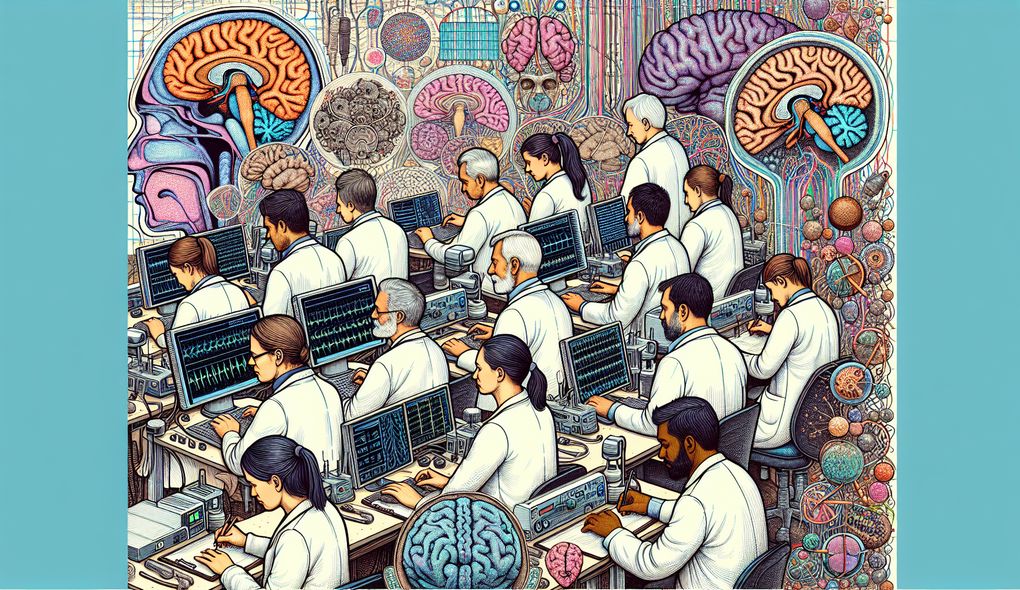How do you ensure effective documentation and record-keeping in neurophysiology?
SENIOR LEVEL

Sample answer to the question:
To ensure effective documentation and record-keeping in neurophysiology, I believe in following a structured approach. First, I make sure to thoroughly document all patient information, including medical history, symptoms, and test results. This helps in accurate diagnosis and treatment planning. I also maintain a record of all neurophysiological tests performed, such as EEG and EMG, along with their interpretations. In addition, I ensure that all documentation is organized and easily accessible by using electronic medical records systems. Finally, I consistently review and update the documentation to reflect any changes in the patient's condition or treatment plan.
Here is a more solid answer:
Effective documentation and record-keeping in neurophysiology is crucial for accurate diagnosis, treatment, and research. As a clinical neurophysiologist with over five years of experience, I have developed a comprehensive approach to ensure the quality and integrity of documentation. First, I carefully collect and record all relevant patient information, including medical history, symptoms, and test results, using standardized forms and templates. This not only helps in accurate diagnosis but also enables better collaboration with other healthcare professionals. I also pay meticulous attention to detail when performing and interpreting neurophysiological tests, such as EEG, EMG, and evoked potentials, ensuring accurate and reliable results. To enhance organization and accessibility, I utilize electronic medical records systems that allow for easy search, retrieval, and updating of patient information. Additionally, I regularly attend continuing education programs and stay updated with advancements in neurophysiology, enabling me to integrate new technologies and methods into my practice and documentation. By following these practices, I strive to maintain accurate and comprehensive documentation that meets regulatory standards and contributes to the advancement of neurophysiology.
Why is this a more solid answer?
The solid answer builds upon the basic answer by providing more specific details and demonstrating the candidate's expertise and experience in the field of neurophysiology. It addresses key skills and qualifications mentioned in the job description, such as outstanding clinical skills, a strong understanding of neurological disorders, and proficiency with neurodiagnostic equipment and software. However, it could still benefit from showcasing examples of how the candidate has effectively utilized documentation and record-keeping to improve patient care or contribute to research in neurophysiology.
An example of a exceptional answer:
In my role as a senior clinical neurophysiologist, I have implemented a comprehensive system to ensure effective documentation and record-keeping in neurophysiology. To enhance communication and collaboration with other healthcare professionals, I actively participate in multidisciplinary team meetings and case conferences, where we discuss patient diagnoses and treatment plans. This collaborative approach helps me gather valuable insights from colleagues and integrate them into my documentation. Moreover, I have developed standardized reporting templates for different neurophysiological tests, which not only ensure consistency but also facilitate data analysis and research. To further improve the quality and accuracy of documentation, I conduct regular audits and quality checks of my own work, as well as that of junior neurophysiologists and technicians. This proactive approach helps identify any discrepancies or errors and allows for timely corrections. In addition, I actively contribute to the neurophysiology research community by publishing articles and presenting at conferences, which requires meticulous documentation and record-keeping. By implementing these strategies and continuously seeking feedback, I have been able to maintain a high standard of documentation and record-keeping in neurophysiology.
Why is this an exceptional answer?
The exceptional answer goes above and beyond the solid answer by providing specific examples of how the candidate has implemented a comprehensive system for effective documentation and record-keeping in neurophysiology. It showcases the candidate's leadership skills in leading multidisciplinary team meetings and conducting audits to ensure quality and accuracy. Furthermore, it highlights the candidate's contributions to the research community, demonstrating their dedication to ongoing education and professional development. The exceptional answer effectively addresses all the evaluation areas and aligns with the key skills and qualifications mentioned in the job description.
How to prepare for this question:
- Familiarize yourself with different neurophysiological tests, such as EEG, EMG, and evoked potentials, and their documentation requirements.
- Gain experience in utilizing electronic medical records systems and familiarize yourself with their features for efficient record-keeping.
- Develop a comprehensive approach to documentation and record-keeping, considering collaboration with other healthcare professionals and research contributions.
- Stay updated with advancements in neurophysiology through continuing education programs and research publications.
What are interviewers evaluating with this question?
- communication
- attention to detail
- knowledge of neurodiagnostic procedures
- organization

